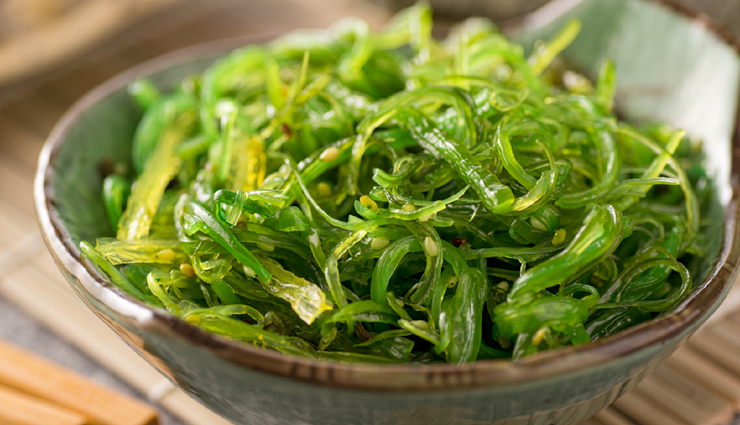Japanese are Consuming Sea Vegetables For More Than 10,000 Years, Here are its Health Benefits

Sea vegetables are thought to have been included in the diet of prehistoric people who lived near water in regions such as Scotland, Ireland, Norway, Iceland, New Zealand, the Pacific Islands, and coastal South American countries. Today, Japan is the largest producer and exporter of sea vegetables.
Throughout the world, there are thousands of types of sea vegetables, which may also be referred to as seaweed and algae. Not all of these are suitable for human consumption; in fact, most are probably not. They tend to be classified into categories by color—brown, red, or green.
# Breast Cancer
In a study published in 2005 in The Journal of Nutrition, California researchers divided 24 rats into two groups. One group was fed a regular diet, and a second group was fed a diet enhanced with kelp. After four weeks, the rats that ate the diet with kelp showed a 25 to 38 percent reduction in estrogen levels in the blood. (Higher amounts of serum estrogen are associated with increased risk for breast cancer.) In addition, the kelp lengthened the rats’ menstrual cycles by up to 37 percent. It is known that women who have longer menstrual cycles have fewer cycles during their lifetime. So, less of their life is spent with high amounts of estrogen in their blood.

In a study published in 2006 in the International Journal of Cancer, researchers investigated nine groups of mice, each containing 20 hairless mice specially bred to be strongly susceptible to UVB-induced skin cancer. 248 HEALTHY FOODS: FACT VERSUS FICTION The researchers applied varying amounts of brown algae polyphenols (BAPs) to the skin (3 milligrams or 6 milligrams in a mild solvent) of some of the mice and fed other mice different amounts of BAPs. Many of the mice were exposed to UVB rays. There was also a group of mice that served as controls.
# Cardiovascular health
In a randomized, double blind, placebo-controlled trial that was published in 2007 in The Journal of Nutrition, British researchers gave 38 healthy men and women, between the ages of 40 and 65, either daily 0.7 g of docosahexaenoic (DHA), an omega-3 fatty acid found in algae and fish oil, or a placebo. After four months, the treatments were switched. The researchers found that when the subjects took the DHA, their diastolic blood pressure dropped by 3.3 mm Hg, and their heart rate decreased by 2.1 beats per minute. So, taking a relatively modest amount of DHA has the potential to enhance cardiovascular health.
In a study published in 2008 in Nutrition Journal, researchers randomly placed 70 subjects with mild to severe osteoarthritis in one of four parallel investigation groups. The subjects, who were between 25 and 70 years old, were then assigned to take one of the following for 12 weeks: Aquamin (a multi-mineral supplement from seaweed, 2400 mg/day), glucosamine sulfate (1500 mg/day), a combination of Aquamin (2400 mg/day) and glucosamine sulfate (1500 mg/day), or a placebo.
# Weight control
A study published in 2008 in the Asia Pacific Journal of Clinical Nutrition may be of particular importance to the millions of people who are either overweight, obese, or simply trying to maintain a healthful weight.
Japanese researchers compared the weight of rats and mice fed regular diets or diets enhanced with fucoxanthin, brown pigment found in some types of sea vegetables. The researchers found that fucoxanthin, which stimulated a protein that increased the metabolism of abdominal fat, caused the animals to lose weight and abdominal fat. Would fucoxanthin do the same for humans? That is uncertain. Nevertheless, companies are now selling concentrated forms of fucoxanthin, and there is anecdotal evidence that these may be effective. The researchers concluded that fucoxanthin ‘‘is an important bioactive carotenoid that . . . should be beneficial for the prevention of metabolic syndrome.’’